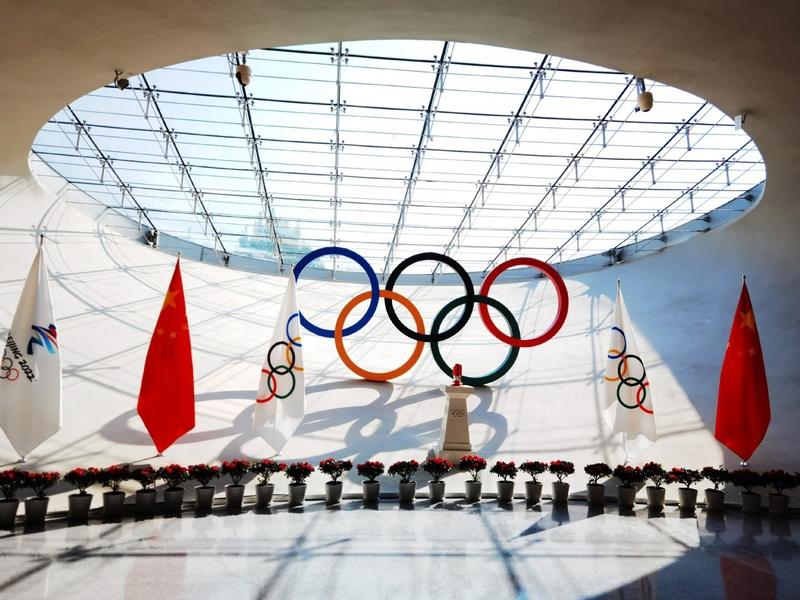 The Olympic flame for the 2022 Olympic Winter Games on display in Beijing's Olympic Tower on Oct 20, 2021. (PHOTO / XINHUA)
The Olympic flame for the 2022 Olympic Winter Games on display in Beijing's Olympic Tower on Oct 20, 2021. (PHOTO / XINHUA)
With the Olympic and Paralympic Winter Games just around the corner, Beijing is completely ready to welcome athletes and delegations from all over the world.
All the preparations for the Games have been finalized in terms of epidemic prevention, venues, facilities, transportation and environmental protection. Expectations are running high. Officials and athletes across the world say they are looking forward to a “splendid”, “exciting” and “safe” event.
The modern Olympic Games, which began in 1896, are still vibrant and show their unique charm. In their 125-year journey to pursue a better and shared future for mankind, the Olympics have always shone with the light of the rule of law.
The Olympic Games promote norms and order, advocate fair competition, emphasize equality and protect athletes’ dignity and friendship. At the same time, they have created a complete operational system with strict, standardized forms and procedures in accordance with the requirements of the rule of law, in order to safeguard rights and interests, organize decision-making, resolve disputes and prevent corruption.
Since Beijing’s successful bid in 2015 to host the 2022 Winter Olympics and Paralympics, China has made significant progress in the field of sports law. For example, the State Council, China’s Cabinet, revised the Regulations on the Protection of Olympic Symbols in 2018, regulating unfair competition conduct related to Olympic symbols.
To fulfill commitments in the endorsement contract and host city contract, the Beijing Municipal People’s Congress and its Standing Committee, under the leadership of the Beijing Municipal Party Committee, have completed 12 pieces of relevant legislation and promoted volunteer services for the Winter Olympics, as well as medical emergency plans, epidemic prevention and control measures and a sustainability plan.
The first Beijing-Tianjin-Hebei collaborative legislation has been carried out, contributing to “green Olympics, shared Olympics, and open and clean Olympics”.
As a matter of fact, China’s sports development has entered the fast lane and rapidly integrated into international sports governance in light of Beijing’s successful bid for the 2008 Summer Olympic Games.
Entering the new era, China’s sports governance capacity has continuously improved with the in-depth implementation of the rule of law.
First, the revision of the nation’s Sports Law is about to be completed. A sports arbitration mechanism will be established by the legislation, and a diversified and efficient dispute-resolution system for sports is being improved.
Second, a new plan, the “Outline for Building a Leading Sports Nation”, is being launched, promoting sports as a landmark for the great rejuvenation of the Chinese nation.
Third, the concept of sports for all has gradually gathered momentum again, and national fitness is identified by the government as an important vehicle in achieving the policy objective of upgrading China from a “major sports country” to a “world sports power”.
Finally, guided by “getting a clean gold medal”, competitive sports have not only achieved fruitful results in terms of event performance, but also in the field of anti-doping.
Now, with the opening ceremony just a week away, Beijing 2022 is well on its way to delivering a Winter Games event that is sure to leave an enormous mark in the world of sports while changing the way future Games are hosted.
Li Zhi is an arbitrator of the Court of Arbitration for Sports, and Qiao Yijuan is an assistant professor of law at Hunan Normal University.
The views do not necessarily reflect those of China Daily.


